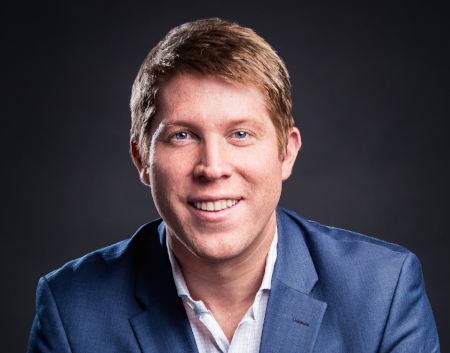Ross Baird, President, Village Capital

What is your role in impact investing?
I co-founded Village Capital, which over the last eight years has been one of the most active impact investors worldwide. Over the past decade, I've worked with thousands of entrepreneurs, investors, and communities across the world trying to build great businesses with impact.
Where is impact investing making headway?
The strongest aspect of impact investing is the people. The best entrepreneurs and investors I know are building mission-driven firms. When I speak with young folks or teach classes the brightest of the next generation all want to work at a firm whose objectives reflect their values. The people are smart, hard-working, and full of integrity - a combination I find rare in mainstream business and society.
What are the challenges that impact investing faces?
We have an unprecedented concentration of money and power in a very small number of people and places in the world. Impact investing, in an effort to go mainstream, I think has (rightly so) tried to engage people with money and power in the field. This has led to some blind spots.
In a well-intentioned desire to reach mainstream, too many firms, funds, and investors are often perpetuate the harmful power dynamics and ill-fitting structures that were created for venture capital, private equity, and investment banking. I'd love to see the impact investment field think critically about HOW we invest and WHO we invest in, not just WHAT the next big idea is.
How well are companies adapting?
Companies that view impact and business objectives in two separate pockets struggle. I know, for example, large multinational companies whose foundations have a commitment to sustainability but their core supply chain practices haven't evolved in fifty years. The corporate social responsibility teams feel somewhat demoralized as impact is lip service, but the companies are "two pocket" thinkers.
Some companies view impact investment as a core way to grow their balance sheet in "one pocket." We work closely with PayPal, for instance, and they recently launched PayPal Working Capital, which has used PayPal's small business data to lend $3 billion to businesses that otherwise couldn't get a loan. For PayPal, this isn't just a nice socially responsible thing to do, it's a core business. It's amazing.
Where has impact investing made the biggest strides?
When innovators show a willingness to innovate in transformative ways. We've worked with investors who are using their entire portfolio in "one pocket" to fulfill their goals. At Village Capital we have changed the way investment decisions are made, giving entrepreneurs power over capital, and we've seen transformational shifts (for example-less than 2% of startup investment went to women in 2017; less than 1% to people of color; in our democratized model over 30% of investments are in women and and over 30% are in people of color).
We've seen companies think critically about how to create wealth for all their employees, such as New Belgium, which is a billion-dollar, 100% employee-owned company. We've seen innovators in creating jobs in rural areas, such as Fin Gourmet, which has created living wage jobs for Asian carp fishermen in Southern Kentucky (they re-brand the carp "Kentucky Blue Snapper"), and Stony Creek Colors, which is turning hollowed-out tobacco farms in Appalachia into indigo farms, supplying companies like Levi's with natural dye to replace the formaldehyde that is likely in your blue jeans. These companies require innovative investment structures too. Companies and investors who are innovating give me hope.
What will I be discussing at the Economist event?
We're at a moral crisis in capitalism - our companies measure success by how much value they can extract every quarter, or how addictive their products can be; not what kind of world they are creating or whether they did the right thing. The impact investing world can change this if we break down structures that create this destructive behavior and build better ones.